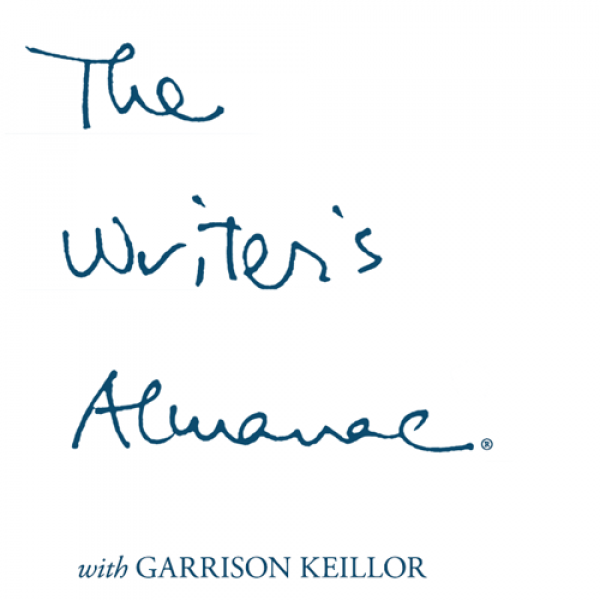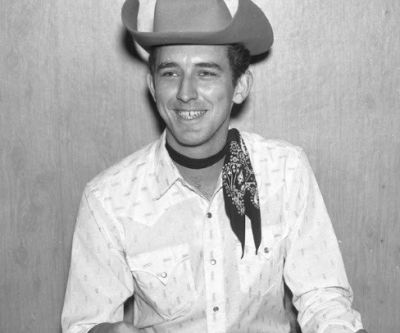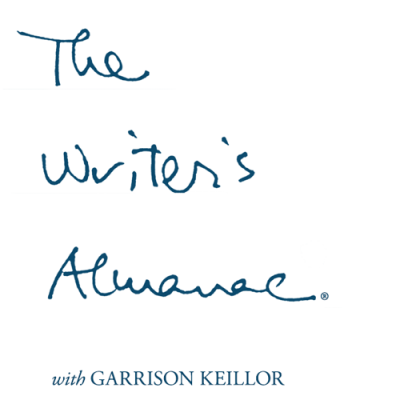December 20, 2018
Tuesday
8:00 p.m.
Minneapolis, MN
Test schedule
A live performance with Robin and Linda Williams at the Cedar Cultural Center
May 20, 2018
Sunday
3:00 p.m.
Lexington, MA
Lexington, MA
A live performance at the Saenger Theatre
April 10, 2018
Tuesday
8:00 p.m.
Tulsa, OK
Tulsa, OK
A live performance at the Brady Theater
March 17, 2018
Saturday
8:00 p.m.
Long Beach, CA
Long Beach, CA
A live performance at the Carpenter Performing Arts Center
March 15, 2018
Thursday
7:00 p.m.
Mobile, AL
Mobile, AL
A live performance at the Saenger Theatre
“A Green Cornfield” by Christina Rossetti. Public domain. (buy now)
The earth was green, the sky was blue:
I saw and heard one sunny morn
A skylark hang between the two,
A singing speck above the corn;
A stage below, in gay accord,
White butterflies danced on the wing,
And still the singing skylark soared,
And silent sank and soared to sing.
The cornfield stretched a tender green
To right and left beside my walks;
I knew he had a nest unseen
Somewhere among the million stalks.
And as I paused to hear his song
While swift the sunny moments slid,
Perhaps his mate sat listening long,
And listened longer than I did.
It’s the birthday of the Turkish novelist Orhan Pamuk, (books by this author) born in Istanbul (1952). He grew up in a wealthy family in a nice house. He wanted to be a painter but it wasn’t quite respectable enough, so he went to Istanbul Technical University to study architecture. It had a radical, Marxist political climate. Pamuk said: “Although I was reading the literature of all these little Marxist factions, I never joined any, and I would go home and read Virginia Woolf. Although I had my sympathies, I saved my spirits by reading Woolf and Faulkner and Mann and Proust.” He decided to leave school, but to be a writer, not a painter.
His first novel, Cevdet Bey and His Sons (1982), sold 2,000 copies its first year. But his second novel sold 8,000 copies in its first year; his third, 16,000; his fourth, 32,000; and his fifth, 164,000. His sixth novel, My Name is Red (1998), had the largest print run of any novel in Turkey’s history.
In 2005, he said in an interview with a Swiss newspaper, talking about Turkey: “One million Armenians and 30,000 Kurds were killed in these lands and nobody but me dares talk about it.” He was arrested and charged with “publicly denigrating Turkish identity.” The trial got full media coverage, and important people from all over the world showed up for it. The case was dropped on a legal technicality, but it got him a lot of publicity, good and bad. Internationally, Pamuk’s book sales were skyrocketing, and he was winning awards and getting rave reviews. But at home in Turkey, he was selling less and the critics complained about everything he wrote. In 2004, he published the novel Snow, and in 2005, a memoir, Istanbul. The next year, he won the Nobel Prize in literature.
Last year, The Museum of Innocence (2008), was translated into English. Many of his novels are political, but this one is mostly about unrequited love, set in 1970s Istanbul. The main character, Kemal, becomes obsessed with a lover, Füsun, when she refuses to become his mistress. So he gives up his well-connected fiancée and all his friends and devotes himself exclusively to ingratiating himself with Füsun in every way. The Museum of Innocence did as well in Turkey as everywhere else. Pamuk said, “It washed — whoosh — all my political problems away, at least for the time being.”
It’s the birthday of the novelist Louise Erdrich, (books by this author) born in Little Falls, Minnesota (1954). She grew up in Wahpeton, North Dakota, where her parents taught at the Bureau of Indian Affairs. Her mother was French-Ojibwe, and her father was German; she and her six brothers and sisters were raised in a close, loving family. Instead of watching TV—they didn’t own one—the children were encouraged to write and to memorize poems.
She went off to Dartmouth in 1972, the same year the university started admitting women and the first year of its new Native American Studies program. The program’s director was Michael Dorris. Years after she graduated, Erdrich was invited back to Dartmouth to read some of her poetry, and she became re-acquainted with Dorris, and they ended up getting married.
She started off as a poet. Her first book was Jacklight (1984), a book of poems based on the thesis she wrote for her master’s degree in 1979. She said, “I began to tell stories in the poems and then realized that there was not enough room.” So she moved on to fiction. She published her first short story, “The Red Convertible,” in 1981, and “Scales” in 1982. Later that year, Dorris convinced her to enter a new fiction writing contest, so in the space of two weeks she wrote “The World’s Greatest Fisherman,” and she won the $5,000 prize. Two years later, she published Love Medicine (1984),a novel made up of 14 interrelated stories.
Love Medicine is populated with characters who live in the fictional town of Argus, North Dakota, or its nearby reservation. There is Marie Lazarre, who starts out life convinced she wants to be a nun—”I was that girl who thought the black hem of her garment would help me rise. Veils of love which was only hate petrified by longing—that was me.” And her rival Lulu Lamartine—”Lulu Lamartine was usually controlled as a cat, and got her way through coaxing, cajoling, rubbing against your leg. An old woman who remained infuriatingly pretty, she bent others to her will before they knew what was happening.” And Nector Kashpaw, the man who loved Lulu but married Marie anyway: “Here is what I do not understand: how instantly the course of your life can be changed. I only know that I went up the convent hill intending to sell geese and came down the hill with the geese still on my arm. Beside me walked a young girl with a mouth on her like a flophouse, although she was innocent. She grudged me to hold her hand. And yet I would not drop the hand and let her walk alone. Her taste was bitter. I craved the difference after all those years of easy sweetness.” After Love Medicine, Louise Erdrich wrote many novels set in the same fictional universe, and Marie, Lulu, and Nector all reappeared, along with others connected to them. Her novels include Tracks (1988), The Last Report on the Miracles at Little No Horse (2001), The Master Butchers Singing Club (2003), The Plague of Doves (2008), and Shadow Tag (2010).
She said, “We have a lot of books in our house. They are our primary decorative motif—books in piles on the coffee table, framed book covers, books sorted into stacks on every available surface, and of course books on shelves along most walls. Besides the visible books, there are the boxes waiting in the wings, the basement books, the garage books, the storage locker books. They are a sort of insulation, soundproofing some walls. They function as furniture, they prop up sagging fixtures and disguised by quilts function as tables. The quantities and types of books are fluid, arriving like hysterical cousins in overnight shipping envelopes only to languish near the overflowing mail bench. Advance Reading Copies collect at beside, to be dutifully examined—to ignore them and read Henry James or Barbara Pym instead becomes a guilty pleasure. I can’t imagine home without an overflow of books. The point of books is to have way too many but to always feel you never have enough, or the right one at the right moment, but then sometimes to find you’d longed to fall asleep reading The Aspern Papers, and there it is.”
She said, “By having children, I’ve both sabotaged and saved myself as a writer. […] With a child you certainly can’t be a Bruce Chatwin or a Hemingway, living the adventurer-writer life. No running with the bulls at Pamplona. If you value your relationships with your children, you can’t write about them. You have to make up other, less convincing children. There is also one’s inclination to be charming instead of presenting a grittier truth about the world. But then, having children has also made me this particular writer. Without my children, I’d have written with less fervor; I wouldn’t understand life in the same way. I’d write fewer comic scenes, which are the most challenging. I’d probably have become obsessively self-absorbed, or slacked off. Maybe I’d have become an alcoholic. Many of the writers I love most were alcoholics. I’ve made my choice, I sometimes think: Wonderful children instead of hard liquor.”
Today is the birthday of the woman who’s been called “the world’s most famous linguist”: best-selling author Deborah Tannen (books by this author), born in Brooklyn, New York (1945). She became interested by the different ways people communicate, so she studied linguistics and wrote a book, You Just Don’t Understand: Women and Men in Conversation (1990). It remained on the New York Times best-seller list for almost four years.






